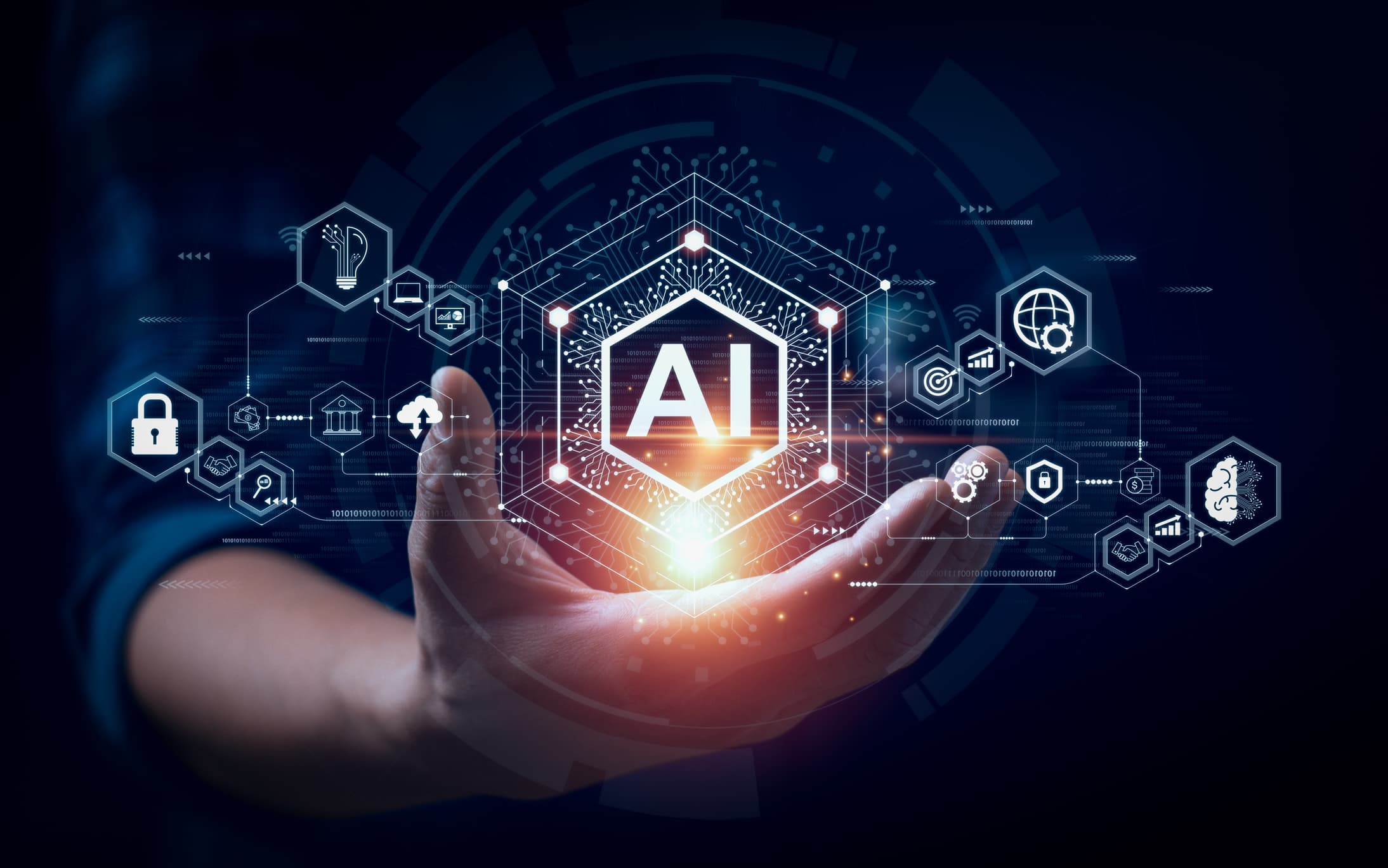Human-AI collaboration enables CRE professionals to work faster, smarter, and reduce risk
Learn how commercial real estate professionals will maintain their critical importance in their firms despite an increasingly AI-enhanced environment.

Key highlights
AI is not meant to replace humans. However, humans who embrace the use of AI to augment their knowledge, creativity, and skills will replace those who do not.
With guidance and intervention from humans, AI can automate repetitive tasks, rapidly process large amounts of data, identify trends, project future outcomes, and recommend optimal solutions.
Human-AI collaboration enhances the strengths of each party, leading to more innovation, higher productivity, and better decisions.
AI is not the replacement event many fear
A recent article in the Harvard Business Review addresses the current angst related to concerns that artificial intelligence (AI) will replace humans.
Harvard Business School professor Karim Lakhani sums up the more likely reality as: “AI won’t replace humans — but humans with AI will replace humans without AI.”
This is a helpful premise for the commercial real estate (CRE) industry to consider. As more CRE organizations embrace data science and artificial intelligence tools, how will professionals in this sector work with them to mutual advantage? Because the wider implication is that in the not-too-distant future, CRE businesses with AI could replace CRE businesses without AI.
A quick stroll through the evolution of AI
Let’s take a deeper dive into the evolution of artificial intelligence, how this is impacting the industry and those who work in it, and what advantages working strategically with AI tools may offer.
Artificial intelligence is simply a set of technologies that enable machines or systems to learn and solve problems. Right now, there’s lots of buzz around generative AI – which is essentially machine learning that produces content such as text, images, video, and audio.
To put artificial intelligence into context, it may be helpful to know that the Association for the Advancement of Artificial Intelligence was founded in 1979. Technology companies have been utilizing AI for more than two decades.
It was back in 2006 that Facebook, Twitter, and Netflix began utilizing AI to enrich advertising and user experiences. Five years after that, Apple introduced the virtual assistant Siri – also supported by AI.
Within commercial real estate, artificial intelligence has long been leveraged within accounting, enterprise resource planning (ERP), and customer relationship management (CRM) systems. In ERP, for example, AI enables automating business processes, tracking data related to resource usage, and facilitating intelligent decision-making based on process efficiency. In CRM systems, AI analyzes customer data to gain insight into behavior, preferences, trends, and supports targeted strategies.
The relationship between humans and AI in CRE
Commercial real estate encompasses massive amounts of data and repeatable processes and patterns related to buying, selling, leasing, accounting, facilities management, tenant management, business operations, and more. These processes and patterns are well suited to AI, which can automate manual and repetitive tasks, rapidly process data, identify trends, project future outcomes, and recommend optimal solutions.
Fundamentally, artificial intelligence enables commercial real estate businesses to work faster and smarter and reduce risk.
“Artificial intelligence is not replacing humans, it is leveraging human intelligence.”
In fact, a growing number of commercial real estate companies are actively working toward developing data science capabilities, with AI occupying a substantial role within this trend.
When Altus Group surveyed professionals in commercial real estate investing firms in 14 countries for its 2023 Global Research Report, The state of data science in commercial real estate investing, and asked which data science capabilities they utilize to support real estate decision-making, an average of 28% of respondents indicated they currently use artificial intelligence/machine learning (ML).
And when asked which data science capabilities their organization planned to develop in the next two to three years to support real estate investments, an average of 33% cited AI/ML.
Their top reason for investing in data science/analytics capabilities? Gain a competitive advantage.
Industry applications for human-AI collaboration
What many real estate organizations are discovering is that as AI matures, it is leading, not to job losses or redundancies, but to more innovation, higher productivity and better decisions.
Following are a number of examples demonstrating how human-AI collaboration in the CRE environment enhances the strengths of each party.
Identifying, organizing, managing, and analyzing data
While AI systems can gather billions of points of data, they need human direction and input to solve problems. Defining goals and metrics; identifying data sources and gaps; ensuring data quality, integrity and security; and selecting appropriate AI tools and algorithms (instructions for solving the problem) are all tasks that humans must perform.
After instructing machines to make decisions based on this data, people must also test, analyze, validate, and adjust the output to ensure it is accurately solving the problem.
Remediating bias and ensuring fairness
Because AI systems are human creations, they reflect human biases. This can lead to issues such as discrimination in property valuations, tenant selection, and other critical processes, which could result in, for example, legal and ethical challenges related to fair housing practices and social responsibility.
Since it’s impossible to completely eliminate bias in AI systems, humans need to assist with mitigation. This may involve developing governance standards, evaluating data to ensure it is an unprejudiced representation, testing training models, ensuring transparency regarding the use of algorithms, and examining outputs for unexpected patterns.
Leveraging industry expertise
Commercial real estate transactions often involve relationship-building, complex negotiations, and nuanced decision-making. Industry expertise and intuition are frequently key factors in successful outcomes.
Artificial intelligence is not at a point where it can replicate these attributes. The creative component of finding and navigating opportunities is the human side of the equation. Real estate professionals use their experience and understanding to ask the right questions and create the right theses for machines to work on.
Also, while AI can rapidly process vast amounts of data, errors in data interpretation or algorithmic decisions could have significant financial and legal repercussions in the real estate industry. Ensuring the accuracy and reliability of AI-driven insights is crucial. This is where CRE professionals who know the market and who understand the inputs and outputs, are indispensable.
Strategies to optimize human/AI collaboration outcomes
As technologies evolve, AI outcomes will become ever faster and better. Within the CRE environment, artificial intelligence is improving data management, expediting market research, and due diligence. And it is improving investment outcomes by identifying the most important factors to evaluate and forecasting potential returns and optimal liquidity. For individual assets, AI is optimizing building performance and energy/environmental efficiency by enabling building systems to autonomously integrate data from IoT devices and occupant behavior.
Looking ahead, we will be able to train AI to make decisions for us, such as whether to acquire an asset, enter a new market, or allocate a portfolio for optimal returns. One day we’ll be able to ask an AI machine a specific question and have an answer within seconds. This will provide CRE professionals with more time to focus on generating innovative ideas and driving improvements.
Ready to collaborate with AI to enhance the performance of your CRE business? The following strategies can help to establish the right foundation to capitalize on AI productively.
Set up guardrails. Governance of artificial intelligence is a significant issue, especially in the CRE industry where financial and confidential information is endemic. AI can’t always determine what it should and should not ingest to make assumptions. And it doesn’t always return the right answers. “Artificial intelligence hallucinations” are common – instances where an AI model generates inaccurate outputs. Employees are likely already experimenting with AI technologies so it’s important to set ground rules to avoid negative repercussions. Appropriate governance can ensure accountability, transparency, privacy protection, and ethical practices while enabling organizations to maximize use of technologies. Establish a framework that sets out the principles and processes regarding how data, people, technologies and processes will work together to achieve the organization’s goals related to artificial intelligence.
“Even if you are using AI strictly for internal purposes, you don’t want to train a computer with information that is confidential, sensitive, or that could be misused. Strict policies are essential."
Make sure what you do works for your business. The key to successful AI strategies is to link them to business objectives and/or key performance indicators. Identify those that AI can support. How can it improve productivity, efficiency or decision making? Or solve a specific problem? Consider the organization’s priorities and how AI tools can help to move these forward. Be sure to allocate a defined return on investment. Then start with those projects that will return the most value.
Just start. The best way to learn more about what AI can do is to use it. Assuming staff members are already using AI, harness this potential. Organize internal education sessions for everyone. Provide access to AI tools and encourage managers and employees to devise use cases. Start experimenting. Often, the biggest impediment to utilizing AI tools effectively is cultural. The people working in CRE businesses need to have a technology mindset. Everyone – executives, managers and support workers alike – should understand how key technologies work and become comfortable using them to help the organization solve problems.
AI potential is just beginning
While artificial intelligence may sound advanced, we are only in the early stages. The rate of innovation is rapidly and continually growing.
If we look at disruptive innovation over time, many people were fearful of losing their jobs when in 1913 the Ford Motor Company implemented the moving assembly line for automobile manufacturing. Instead, our assembly lines today are human-machine collaborations with highly advanced technologies that enable manufacturers to produce automobiles at previously unimagined speed and scale.
“The ultimate beauty of the relationship between AI and CRE professionals is that artificial intelligence gives you so much more freedom to think forward because it has taken care of the past thinking. It is heralding a valuable period of creativity.”
Technological innovation will disrupt some jobs, but it also leads to new ones, along with a more educated and capable workforce, higher productivity, and better lives for more people.
Those commercial real estate companies that welcome innovative technology, harness its potential, and embrace change will be tomorrow’s most successful businesses.
Author

Altus Group
Author

Altus Group
Resources
Latest insights







